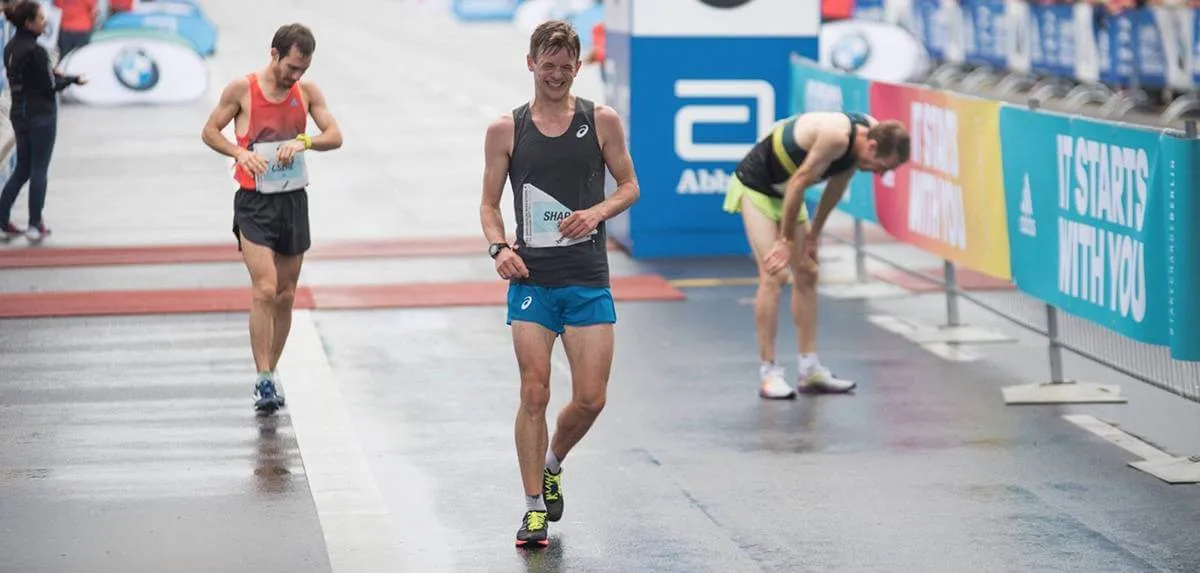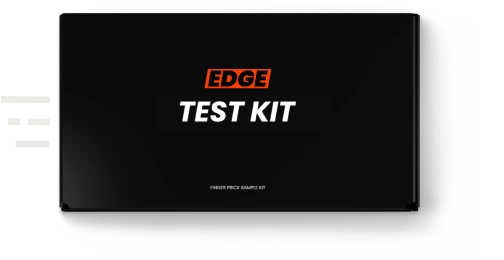
Running
Interview With Matt Sharp
3 mins read
Published on
October 4, 2017
Written by
EDGE
Share this article
1. Firstly, congratulations on a new PB at Berlin marathon last weekend, in only your second attempt at the distance (from 2.17.45 in London to 2.16.02). Did the race go to plan?
Overall I was very happy with race, the conditions were far from ideal with high humidity and rain which lead to a very slippery road surface. The course itself lived up to expectation with amazing crowds lining the 42.2km and everything was perfectly organised in typical Germanic fashion. I chose to run with the 2.14 pace group and we hit the halfway point in 66.40. I was feeling good and in control at this point but after 30km the fatigue of the marathon caught up with me and my legs really started to pay the price! I lost time in the last 10km but was pleased to leave Berlin with a new PB and a great marathon experience against some of the very best in the world.
2. You were the World triathlon under 23 elite champion in 2011. Usually that would indicate the potential for a successful senior career in triathlon, so why the shift to running?
I decided to switch to distance running after suffering a badly broken collar bone and elbow during a training crash. This was the day after returning from a poor race in Yokohama, the last qualification race to make the Rio Olympic team. I decided I needed some time away from ITU triathlon racing and wanted a new challenge.
3. Do you still swim and bike to complement your run training? Will you do the odd triathlon or do you need to remain super focussed?
I still swim once a week and ride my bike daily but mainly for enjoyment and recovery purposes. I don’t think I would like to race a triathlon again without training a bit more on the bike as I have lost a lot of power on the bike and don’t like the idea of competing without preparing well!
4. What did your peak run week look like before Berlin?
I have always been very interested in marathon training, especially that of the east Africans. I have tried to mirror some of the sessions and the attitude they bring to workouts in my own training. I have spent some time training with a group in Ethiopia, and during my bigger weeks before Berlin I was running about 100miles per week with one speed session, one threshold/marathon session and one longer build run. I’ve been slowly building up my run volume since stopping triathlon as it is very easy to pick up overuse injuries when running high mileage coupled with big marathon workouts.
5. How long does it take you to recover from an all-out marathon and does that period involve complete rest or easy sessions?
I’m definitely still learning how much recovery to allow after a marathon race! I’ve spoken to a few other athletes and it is at least 2-3 weeks before you are back running fast. I take 7-10 days of very easy jogging after the race and try to swim a bit more, as it allows my body to actively recover without any load on the bones and connective tissues.
6. As running is notoriously a high-impact discipline, have you had to focus more on injury prevention?
I’m in the gym twice a week and always include weight training in my gym programme as I feel it makes a huge difference when it comes to injury prevention. I stretch a lot more than I used to do when training for triathlon and I think that really helps with good run form and also recovery when running hard day after day.
7. What’s your dream goal in the marathon?
My main goal is to run under 2.10 in the marathon. I feel I have a lot to improve on and am very new to running bigger volumes so I’m very excited to see how close I can get to this – I know it is a tough goal to set!
8. Is Ironman or ultramarathon on your radar in the future?
Currently I don’t have any ambition to race Ironman or ultra races but I would never write it off.
9. Are you supported by sponsors, and how have they helped you?
I’m very lucky to have the support from Forth Edge to help me monitor my fatigue levels and help to spot potential problems before they affect my performance. I’m supported by Asics for running kit and Affinity altitude for altitude simulation.
10. If you weren’t an athlete, what you be?
I was very close to joining the RAF a few years back as I have always wanted to be a pilot. Whether I would have made the cut or not I can’t say, but I would like to think that would have been my career if I wasn’t an athlete.
Blood test for
Male Runner
18 Biomarkers Included
sports doctor review
Results in 2 working days
Flexible subscription

